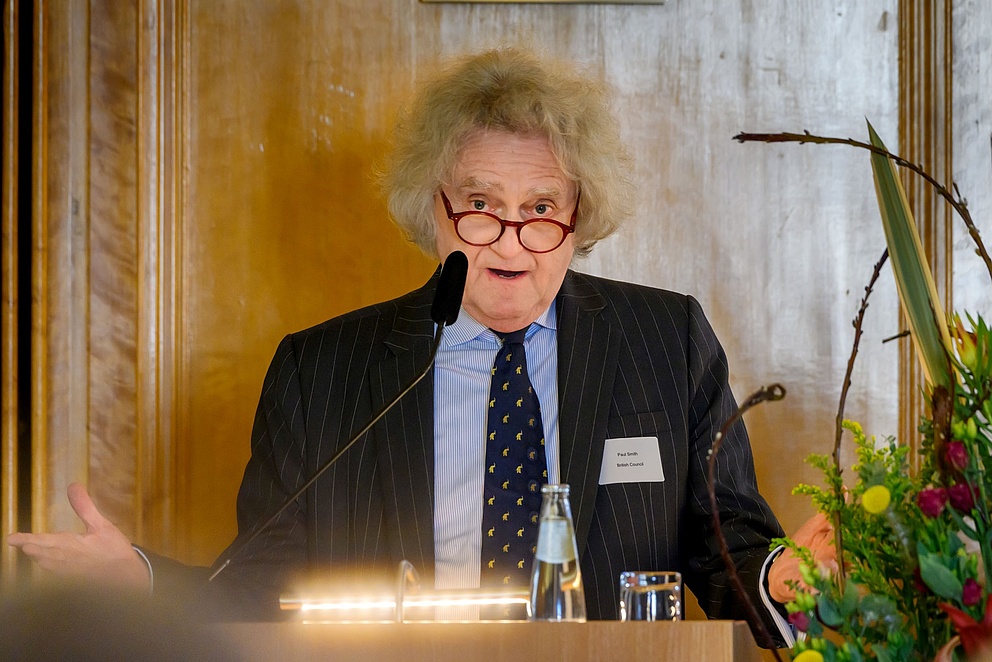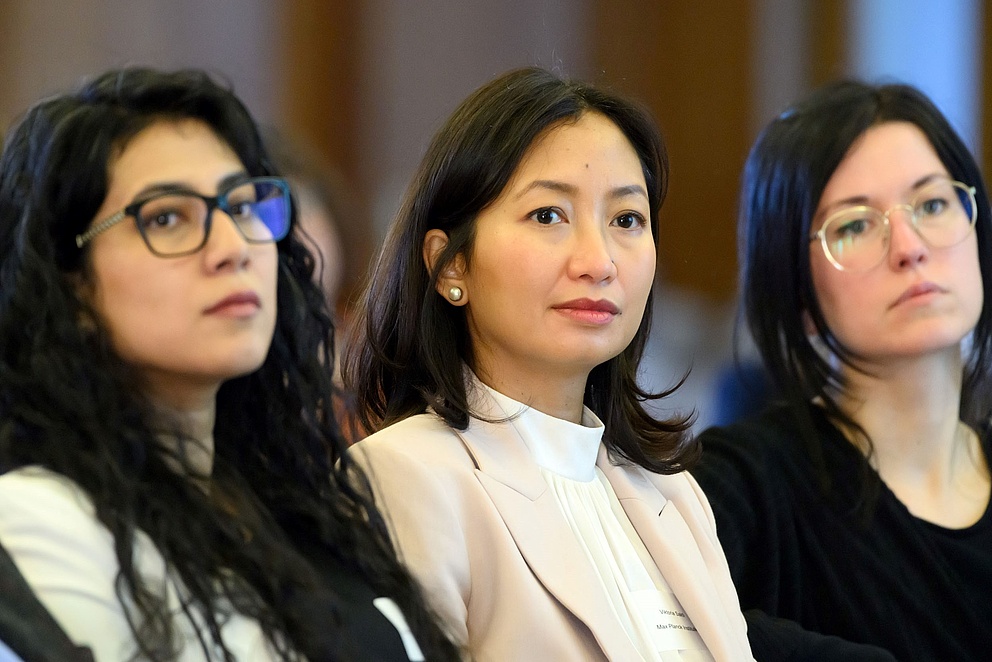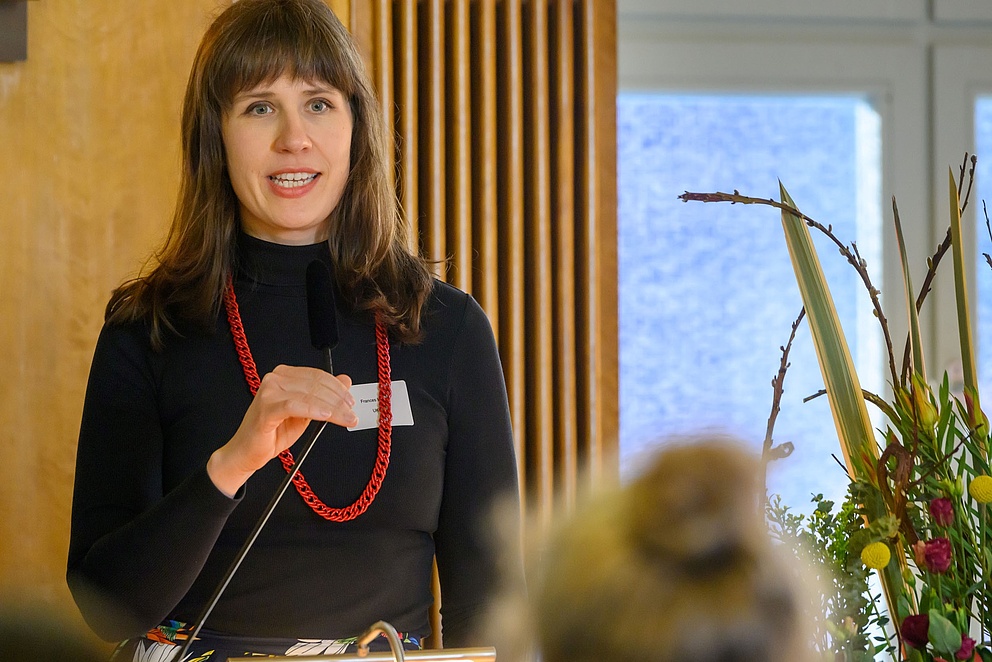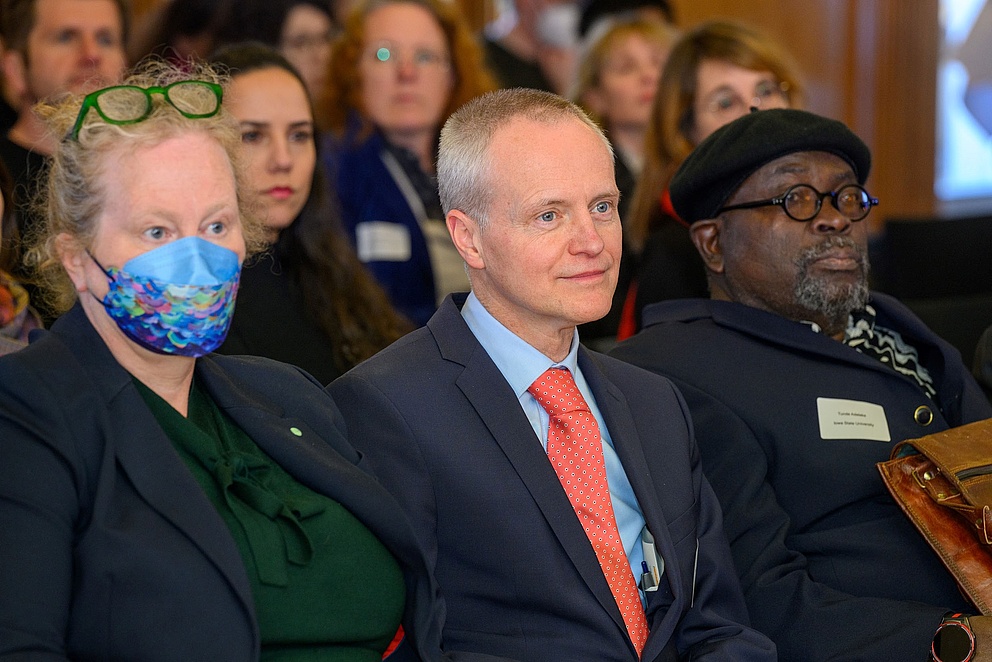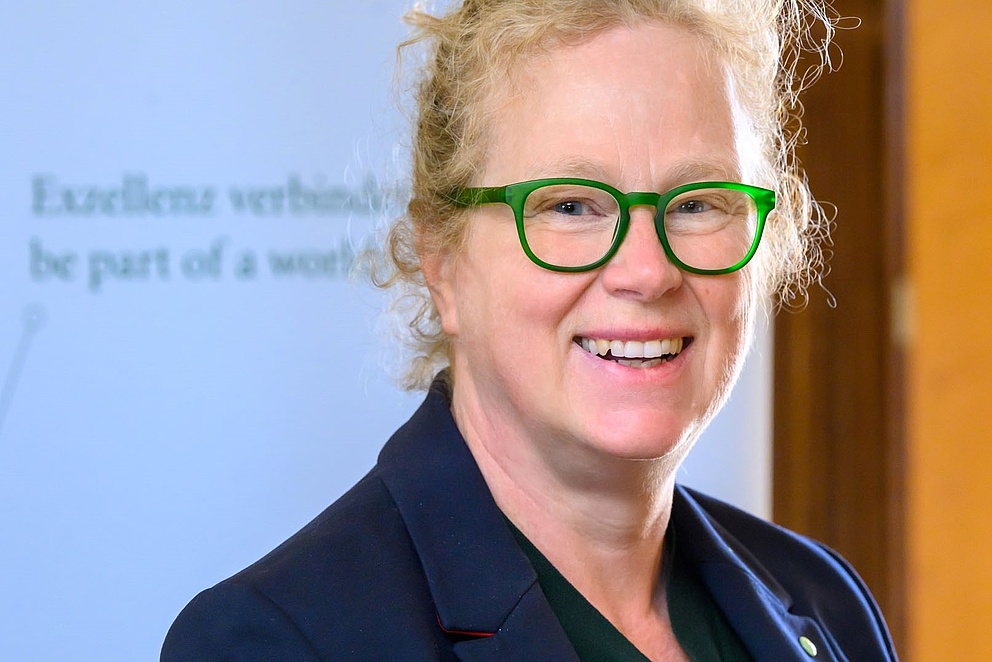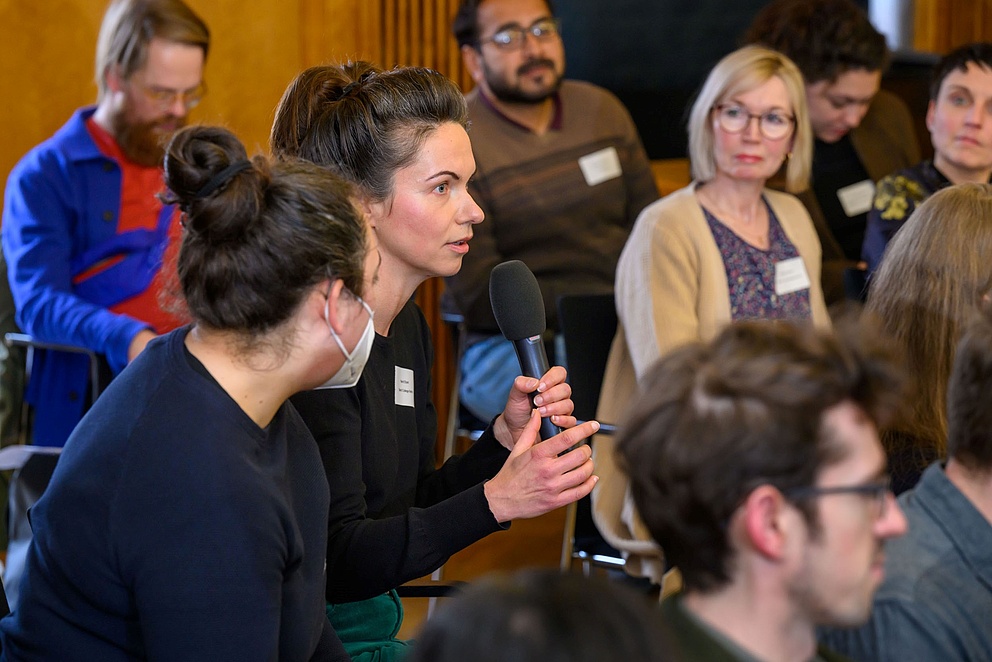
Contact
Press, Communications and Marketing
Tel.: +49 228 833-144
Fax: +49 228 833-441
presse[at]avh.de
“Diversity drives excellence: Rethinking academic potential in higher education” – this was the matter debated in the Berlin-Brandenburg Academy of Sciences and Humanities by some 90 invited representatives of the political arena, academia and diversity management as well as research funding organisations on 2 March. Taking a magnifying glass to current measures and activities in the international science system, the aim was to generate new strategic ideas for the work of research and funding organisations.
Stefan Delfs, head of Department 604 at the Federal Foreign Office, and Frances Wood, Director International UK Research and Innovation (UKRI), spoke on the political and strategic general conditions regarding diversity promotion in Germany and the UK. Stefan Delfs proposed that promoting diversity in science systems and in research promotion should generally reinforce the rights of vulnerable groups. Frances Wood emphasised the importance of a comprehensive strategy process, including external advice and systematic data collection.

The panel moderated by Eva Murašov (Tagesspiegel) highlighted, in particular, institutional perspectives on the interaction between diversity and excellence. The speakers, Humboldt Professor Catherina Becker (TU Dresden), Rajani Naidoo (University of Bath), Tunde Adeleke (Iowa State University) and Frances Wood, focused on the current conversation about diversity and excellence in the target countries and analysed existing exclusion mechanisms, such as prejudice in selection procedures.
Greater attention needed to be paid, they noted, to entry barriers and the culture of the system that rarely took account of the real needs and experiences of marginalised groups. A critical appraisal of the rules of western science systems was called for, especially in view of growing scepticism about the diversity efforts at universities, said Tunde Adeleke and Rajani Naidoo with reference to the UK and the United States. In this context, Catherina Becker emphasised the relevance of diversity strategies and managerial responsibility. What is needed to ensure researchers remain in the system and are able to fully exploit their potential? This, according to Becker, was a key question.
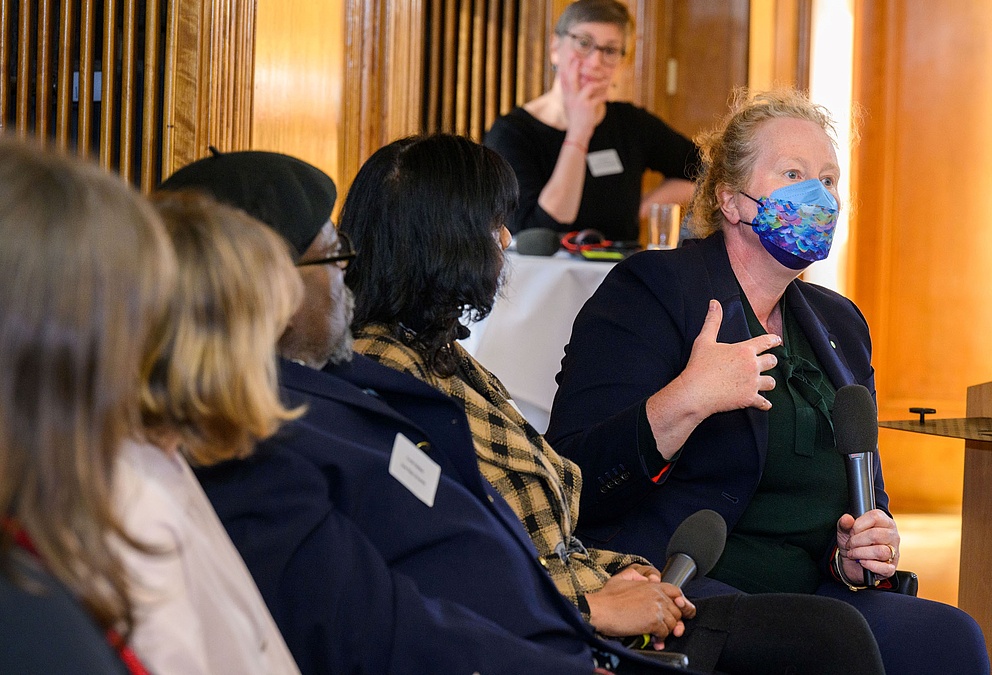
Exactly what the conversation on excellence means for young researchers with diverse backgrounds became abundantly clear during the second panel. Chair Jeff Peck invited Julie Larran (FU Berlin), Victoria Sakti (MPI Göttingen) and Ahngeli Shivam (JGU Mainz/Georgia State University) to reflect on their experiences as early career researchers. They described multiple barriers in the German system: defined norms of excellence, lack of access to information and support opportunities as well as the language barrier. It was important to find and promote cooperation and exchange amongst doctoral candidates and postdocs with similar experiences – although, at the same time, this did not relieve the institutions of their own responsibility. It was important to actively foster a culture of appreciation. On top of this, mentoring played a key role in the higher education context – it needed to be practised, fostered and rewarded.



